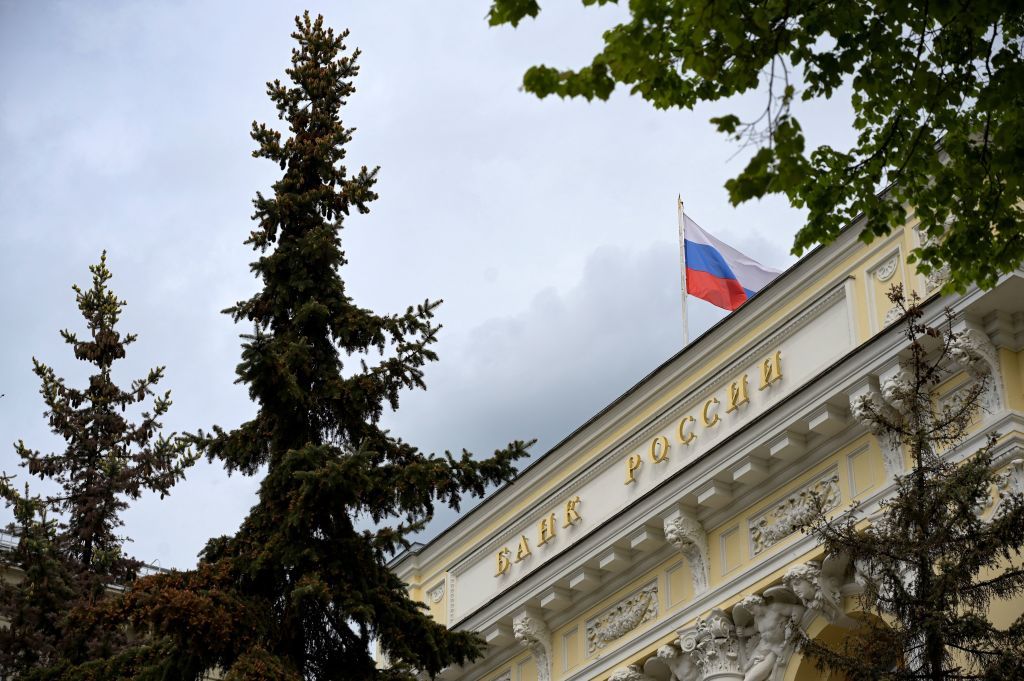Opinion: The REPO Act hasn’t won the war for Russian assets

A man walks past buildings destroyed by Russian attacks in Borodianka, Ukraine, on May 15, 2022, amid Russia's war against Ukraine. (Christopher Furlong/Getty Images)

Andrii Borovyk
Executive Director of Transparency International Ukraine
U.S. President Joe Biden signed the Rebuilding Economic Prosperity and Opportunity for Ukrainians (REPO) Act on April 24. Largely overshadowed in the media by the groundbreaking approval of $61 billion in aid for Ukraine that same day, the REPO Act is equally crucial. However, the REPO Act has not yet won the war for Russian assets.
The REPO Act allows the Biden administration to confiscate Russian sovereign assets that are subject to U.S. jurisdiction to support Ukraine. In essence, the bill overcomes the main legal concern of Russia’s sovereign immunity by allowing the U.S. to confiscate the assets due to Russia’s violation of international law.
All Russian state assets, including the Central Bank of Russia, the Russian Direct Investment Fund, the Russian Finance Ministry, and the property and financial institutions owned by the Kremlin, could be confiscated. Assets under diplomatic immunity cannot be touched.
The REPO Act stipulates that all Russian sovereign assets remain frozen until the end of the war, and Ukraine is compensated fully either by Russia or an international mechanism.
The funds derived from the confiscated assets will be administered by the U.S. State Secretary and go toward a special fund for Ukraine. The fund’s primary focus will be humanitarian assistance and Ukraine’s reconstruction – there’s no mention of military aid at this time.
The REPO Act also emphasizes that repurposing confiscated Russian assets should be a multilateral effort alongside the Group of Seven (G7) nations, the European Union, and other countries where they are located. To this end, the U.S. and its allies will create the Common Ukraine Fund, which will be regulated via bilateral and multilateral agreements on compensation mechanisms for Ukraine.
However, the REPO Act has not yet won the war for Russian assets.
For one, the bill does not guarantee the confiscation of Russian assets – this is a decision for the U.S. president. As tensions mount in the lead-up to the U.S. presidential election in November, there are fears that a Donald Trump presidency could delay, if not impede, the confiscation of Russian assets. It’s critical that the law be applied as quickly as possible.
Another issue is that the REPO Act stipulates that any efforts by the U.S. to confiscate and allocate Russian assets must be done in conjunction with international allies, including the G7, the European Union, and other countries. The fact that the U.S. would require the prior consent of foreign governments before it could take discretionary action has been criticized by legal experts as being “unprecedented” and “unconstitutional.”
While the decision to confiscate Russian assets under the REPO Act cannot be subject to appeal by Russia as a state in U.S. courts, individuals and legal entities still have the right to do so. We should, therefore, expect lawsuits from Russian banks and companies. Russia could also appeal to international courts. Appeals at both the domestic and international levels could delay their transfer to Ukraine.
Russian assets in the U.S. are also only a drop in the bucket, totaling around $4-5 billion. This barely scratches the surface of Ukraine’s $486 billion reconstruction bill or $100 billion in annual war costs.
In spite of these challenges, the REPO Act sets a major example for Ukraine’s allies in transitioning from rhetoric to concrete steps when it comes to confiscating Russian assets. Next on the list will be efforts to tax future income on Russian sovereign assets stored in Euroclear. It’s important to remember that we’re losing precious time.
Editor’s Note: The opinions expressed in the op-ed section are those of the authors and do not purport to reflect the views of the Kyiv Independent.











